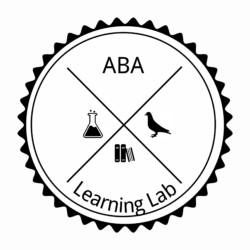James Macon, M.Ed., BCBA
“But James, we tried ABA and it didn’t work.” Ahh, there it is. That phrase I dislike more than any other phrase. Why do I dislike it so much? Let’s break it down; ABA is applied behavior analysis. Behavior analysis is a natural science. Applied behavior analysis is the application of that science. So to say “ABA didn’t work” is akin to saying “we tried applied ‘science’ and it didn’t work.”
Substitute science for physics, biology, chemistry, etc, and you realize how silly that phrase sounds. When an experiment doesn’t work, it’s not the science, its probably the setup, the control, or even the scientist. What they probably meant to say was “we tried to use science, and our experiment didn’t work.”
The first time I heard it was from a teacher. I was consulting in a school at the time, and was regularly working with teachers to promote better classroom management and to design interventions for their students. The kids in the classrooms had varying degrees of ASD or other developmental disabilities, and the teachers all had varying degrees of experience and training.
At the time, I was worried the “old-school” teachers would resist having a consultant come in their classroom, telling them strategies that might be radically different then their decades worth of experience has told them. I also thought the younger teachers would be more open to trying behavioral strategies, and assumed their training and curriculum would have covered some behavioral analytic topics.
I was wrong on both. The “old school teachers” were a blast to work with. They had taken behavior modification classes back in the 1970’s, and understood the impact consequences have on behavior. They were open to feedback and excited to use scientific strategies to enrich their classrooms.
The younger teachers were a bit more resistant to ABA. Some had worked with “behavioral specialists” in the past, and apparently had not had good results. Its important to note here that a behavioral specialist is specific job that exists in many school systems, and usually denotes you will be working with special education students and teachers to solve behavioral problems, through the creation of behavior intervention plans (BIPs) and training. It sounds a lot like the work behavior analysts do, but the job requirements and training are very different.
Needless to say our younger teacher had worked with a behavior specialist in the past and had had bad results in their classroom. They believed whatever this behavior specialist had done in the past was ABA and wanted nothing to do with it. I couldn’t blame them, I wouldn’t want to expose my classroom to unnecessary risk or change either, especially if I didn’t trust what they were advising me on.
I didn’t blame the behavior specialist either. Best case scenario, they were great at their job. Worst case scenario, they were woefully underqualified and placed ins an impossible situation by a school system that didn’t know there is a whole field of study and practitioners dedicated to the study and change of behavior.
In either case, the teacher and I ended up describing the same things. I asked her what she thought was going on and she believed her student acted out to get attention from her. The FBA also supported this conclusion. We shaped an appropriate alternate response and used several strategies to eliminate the disruptive behavior.
This experience was a teachable moment for both of us. For the teacher, she was curious to learn that the successful strategies she used were behavior analytic in nature. She was familiar with positive behavioral supports (PBS) and the “Good Behavior Game,” but now was connecting these to a broader science of behavior.
For myself, it was another great reminder that as behavior analysts, we are always ambassadors for our science and field. There are many others out there who claim to be behavior specialists, and unfortunately, we are sometimes fighting a PR battle against their work.

